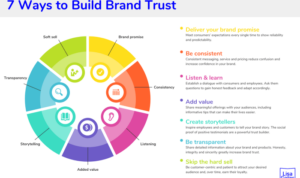Building a Local Marketing Strategy kicks off the game plan for businesses looking to dominate their local market. From online presence to community engagement, this playbook covers it all in a language your target audience speaks.
Importance of Local Marketing Strategy
Having a strong local marketing strategy is essential for businesses looking to connect with their target audience in a specific geographic area. By focusing on the local community, businesses can build trust, loyalty, and brand awareness among local consumers.
Examples of Successful Local Marketing Strategies
- Google My Business: Creating a Google My Business profile allows businesses to show up in local search results, making it easier for potential customers to find them.
- Local Events Sponsorship: Partnering with local events or organizations can help businesses increase their visibility and support the community at the same time.
- Localized Social Media Campaigns: Tailoring social media content to the interests and needs of the local audience can help businesses engage with customers on a more personal level.
Impact on Businesses, Building a Local Marketing Strategy
A well-executed local marketing strategy can lead to increased foot traffic, higher conversion rates, and stronger customer relationships.
Components of a Local Marketing Strategy: Building A Local Marketing Strategy

Local marketing strategies consist of various key components that businesses need to focus on in order to effectively reach and engage with their target audience within a specific geographical area.
Online Presence
Having a strong online presence is crucial for any local marketing strategy. This includes having a professional website that is optimized for local search, as well as maintaining active profiles on relevant online platforms such as Google My Business, Yelp, and other local directories.
Local
Local plays a significant role in ensuring that businesses appear in local search results when potential customers are looking for products or services in their area. Optimizing website content, using local s, and obtaining backlinks from local sources are all key aspects of a successful local strategy.
Social Media
Utilizing social media platforms like Facebook, Instagram, and Twitter can help businesses connect with their local community and build brand awareness. Engaging with followers, sharing local events or promotions, and responding to customer inquiries are all ways to leverage social media in a local marketing strategy.
Community Engagement
Building relationships with the local community is essential for a successful local marketing strategy. This can involve sponsoring local events, participating in community service projects, or collaborating with other local businesses. By actively engaging with the community, businesses can create a positive reputation and loyalty among local customers.
Implementing a Local Marketing Strategy

When it comes to implementing a local marketing strategy, businesses need to follow a series of steps to ensure success. From researching the local market to monitoring and adjusting strategies, each stage is crucial for reaching the target audience effectively.
Researching and Understanding the Local Market
Before diving into creating a local marketing strategy, businesses must conduct thorough research to understand their local market dynamics. This involves:
- Identifying target demographics and consumer behaviors specific to the local area.
- Analyzing competitors and their strategies to identify gaps and opportunities.
- Gathering data on local trends, preferences, and cultural nuances that can influence marketing efforts.
Tailoring the Strategy Effectively
Once businesses have a comprehensive understanding of the local market, they can tailor their marketing strategy to resonate with the target audience. Tips for effective tailoring include:
- Creating personalized content that speaks to local interests and values.
- Utilizing local language and cultural references to establish a connection with the community.
- Adapting products or services based on local preferences and feedback.
Consistent Monitoring and Adjustment
After implementing the local marketing strategy, businesses must consistently monitor its performance and be ready to adjust based on local market trends. This involves:
- Tracking key performance indicators (KPIs) to measure the effectiveness of marketing efforts.
- Gathering feedback from local customers to understand their satisfaction and preferences.
- Staying updated on local events, news, and changes that could impact the marketing strategy.
Measuring Success of a Local Marketing Strategy
In order to determine the effectiveness of a local marketing strategy, businesses need to track key metrics and KPIs to evaluate their performance and make data-driven decisions.
Key Metrics and KPIs
- Foot Traffic: Tracking the number of people visiting your physical location can indicate the impact of your local marketing efforts.
- Conversion Rate: Monitoring the percentage of visitors who take a desired action, such as making a purchase or signing up for a newsletter, can show how well your strategy is converting leads into customers.
- Online Reviews and Ratings: Keeping an eye on customer feedback and ratings on platforms like Google My Business or Yelp can give insight into customer satisfaction and brand reputation.
- Local Search Rankings: Monitoring your position in local search results can help you assess your visibility and reach in the target market.
Analyzing Data for Evaluation
To effectively analyze the data gathered from these metrics, businesses can use tools like Google Analytics, social media insights, and CRM software to track and measure the performance of their local marketing strategy. By identifying trends, patterns, and areas for improvement, businesses can optimize their strategies for better results.
Tools and Platforms for Tracking Performance
- Google Analytics: Provides detailed insights into website traffic, user behavior, and conversions, allowing businesses to measure the impact of their online marketing efforts.
- Social Media Analytics: Platforms like Facebook Insights, Instagram Insights, and Twitter Analytics offer data on engagement, reach, and audience demographics, helping businesses assess the effectiveness of their social media campaigns.
- Local Tools: Tools like Moz Local, BrightLocal, and SEMrush can help businesses monitor local search rankings, track citations, and analyze competitors to improve their local performance.





